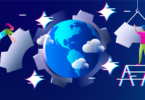Learning management systems (LMS) have become an essential technology for organizations to train and educate employees, customers, and partners. While off-the-shelf LMS platforms may work for some, a growing number of companies are seeking custom LMS development from specialized lms development companies to meet their specific learning and development needs. As we enter 2024, custom LMS solutions are providing more flexibility, personalization, and integration capabilities to deliver more effective and engaging learning experiences.
Growth of Custom LMS
The global LMS market is predicted to grow to $15.72 billion by 2024. Within this market, custom LMS development services are seeing strong demand with a projected CAGR of over 25% from 2019-2024. There are a few key factors driving this demand for tailor-made learning platforms:
1. Need for specialty features: Generic LMS platforms often lack features for managing live training, simulations, assessments, social learning etc. required for certain training programs. Custom LMS allow adding any modules needed.
2. Brand consistency: Organization can ensure brand consistency in the LMS with their visual identity, style guidelines and content standards through custom development by lms development companies.
3. Tighter integration: Custom LMS can be integrated seamlessly with the company’s HR, L&D, CRM and other business systems which is a challenge with readymade platforms.
4. Personalization: Learner experience can be individualized based on interests, roles, learning style etc. with a custom LMS to drive better engagement.
5. Data security: For organizations dealing with sensitive data, custom development allows better control over data security and compliance with internal and external policies.
Capabilities of Custom LMS in 2024
With continuous innovation in learning technologies, custom LMS capabilities today have expanded tremendously from the early days of generic SCORM-based systems. Some of the in-demand capabilities predicted to grow further in 2024 include:
1. Mobile readiness: As learners will increasingly access LMS via mobile, responsive design and mobile device compatibility will be must-haves. Offline mobile access options will also evolve.
2. Gamification: Custom LMS will increase adoption of gaming elements like badges, leaderboards, assessments etc. to drive learner motivation and engagement.













